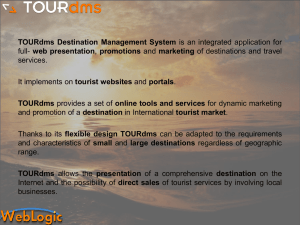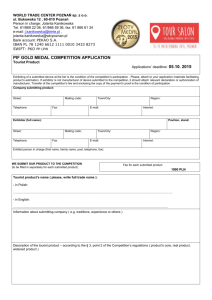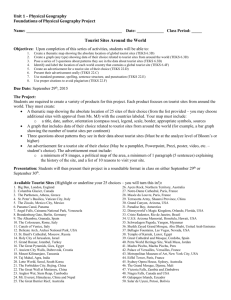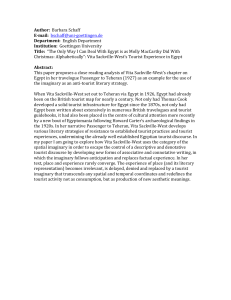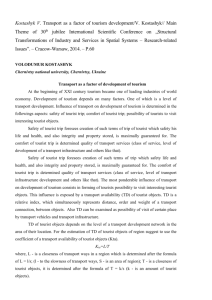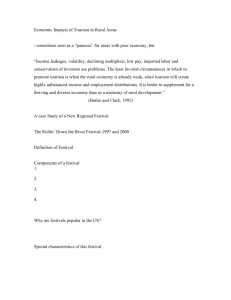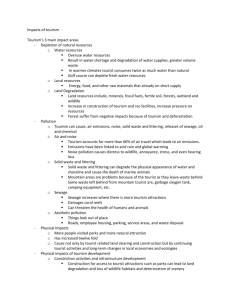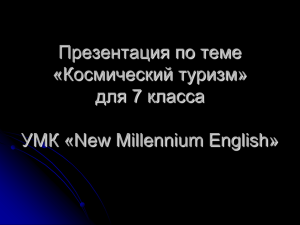Truth-creation in tourism discourse (ALI tourist discourse
advertisement
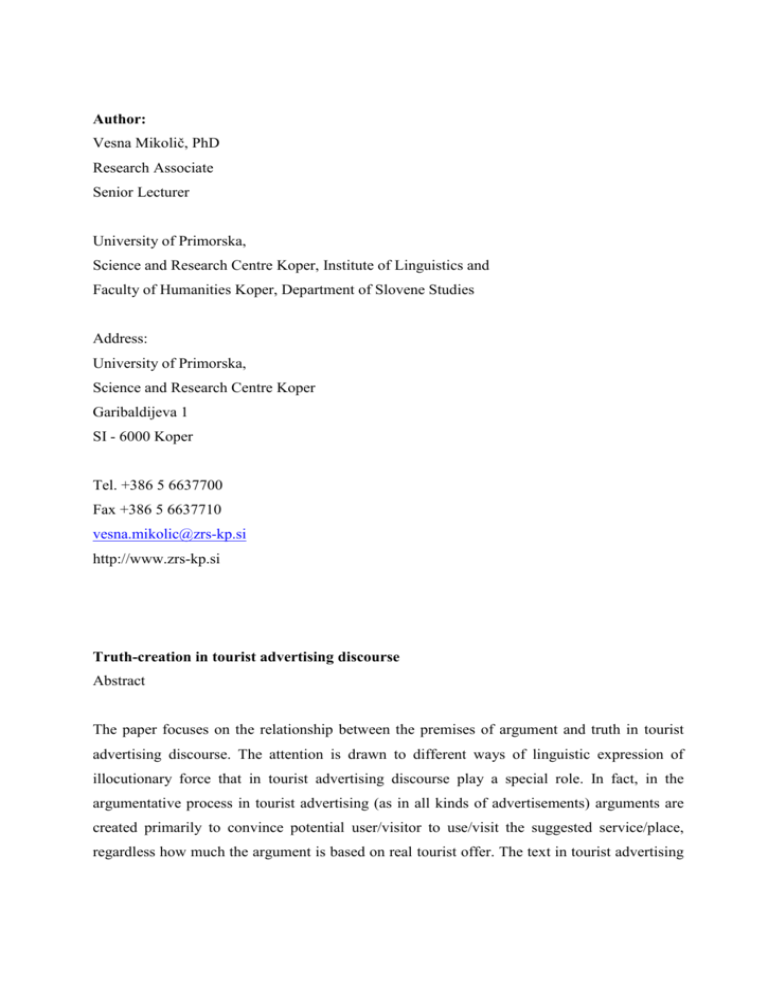
Author: Vesna Mikolič, PhD Research Associate Senior Lecturer University of Primorska, Science and Research Centre Koper, Institute of Linguistics and Faculty of Humanities Koper, Department of Slovene Studies Address: University of Primorska, Science and Research Centre Koper Garibaldijeva 1 SI - 6000 Koper Tel. +386 5 6637700 Fax +386 5 6637710 vesna.mikolic@zrs-kp.si http://www.zrs-kp.si Truth-creation in tourist advertising discourse Abstract The paper focuses on the relationship between the premises of argument and truth in tourist advertising discourse. The attention is drawn to different ways of linguistic expression of illocutionary force that in tourist advertising discourse play a special role. In fact, in the argumentative process in tourist advertising (as in all kinds of advertisements) arguments are created primarily to convince potential user/visitor to use/visit the suggested service/place, regardless how much the argument is based on real tourist offer. The text in tourist advertising is basically to a great extent subjective. Nevertheless, the message is not long-term effective if the argument differs too much from the objective truth since it probably convinces a customer just once. Due to this fact the argument should be limited in some way considering the real state of tourist offer. In other words, the speaker's relation to the actual tourist offer as proposition contents in argumentative process causes restrictions or modifications of arguments. In terms of the functional linguistics it is an ideational function of a text which is important in this case since it is here where the ratio between the truth and argument is formed. From the aspect of long-term effect of tourist advertising texts, the arguments based on objective truth or being close to it, are stronger than those which are very subjective. Therefore, tourist advertising texts nearly resemble expert texts, whose aim is above all to precisely determine the reception of the addressee e.g. to describe an object or explain its function in a way that gives the addressee a lifelike situation. On the other hand, without a subjective view on proposition contents, the tourist offer would become less attractive for the user and the tourist advertising text less effective. Bridging the »gap« between objective truth, that is real tourist offer, and subjectivity is possible by modification of arguments. It allows the formation of also more or less subjective arguments which are, however, relativised, so that they express an obvious or less obvious deviation from the objective truth. A discourse analysis of tourist brochures in Slovene-Italian border area is used as the main method for monitoring argument modification in the present research, where we try to find out the frequency and the language means the arguments in tourist advertising texts are relativised with. We would like to know if the extent and type of argument modification depends on the kind of tourist offer, that is primary offer (natural and social tourist means) or secondary offer (accommodation, transport and sport facilities, services, social events, infrastructure, health facilities, entertainment etc.). Language means of argument modification are classified according to meaning and form. Also some intercultural differences in tourist advertising discourse from the aspect of argument modification are given.
